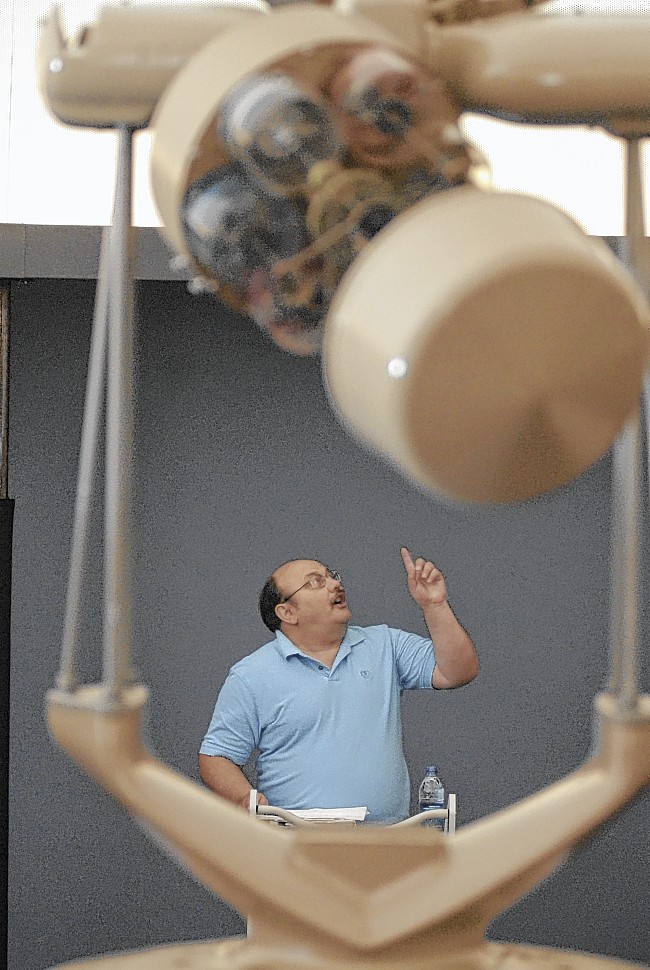CHICKAMAUGA, Ga. - It was a starry, starry night Wednesday at noon in Walker County.
More than a decade after the first one closed, the local school system unveiled its new planetarium on Pond Springs Road. The 92-seat domed theater, the crown jewel of the school district's science and technology center, replaces a former planetarium in Rock Spring that operated from 1967 to 1998.
"This is indeed a wonderful day, despite the tragedy in our community," school Superintendent Melissa Mathis said, acknowledging the ongoing cleanup after last week's storms. "This is a positive step for the future."
Construction of the $800,000 planetarium was kicked off with a $50,000 NASA grant in 2005. The rest was paid for by Walker County Schools and with money from a special purpose local option sales tax, or SPLOST.
Although Walker County students will be the first priority, students from Alabama and Tennessee also will use the new planetarium, and officials expect to host 25,000 visitors each year.
"This is such a shot in the arm, not just for our schools, but for all area schools," Mathis said.
During the presentation, Mathis announced the facility would be called the Smith Planetarium, after Walker County Board of Education member and director of the previous planetarium James A. Smith.
After the unveiling of the facility, officials projected a sky full of stars onto the ceiling and, using a green laser pointer, Smith indicated various constellations for those present.
BY THE NUMBERSSmith Planetarium at the Walker County Science and Technology Center40 feet: Diameter of the dome92: Seats in the theater113: Panels on planetarium's screen13 years: Time since old Rock Spring planetarium closedSource: Walker County Schools
"I can hardly wait until September," said Smith, who plans to volunteer his time to help teach students this fall.
In addition to videos of the night sky, school officials also will have access to the automated telescope 200 feet behind the center, operated by the Marshall Space Flight Center in Huntsville, Ala. Teachers will be able to project live images of the moon and of Saturn on the planetarium's screen.
Wayne Robinson, Walker County's coordinator of technology, information services and science education, said the district bought most of the planetarium's materials from similar facilities that closed in Nashville and Atlanta.
Bill Cooke, a Huntsville-based astronomer and Rossville High School graduate, was on hand at the planetarium's unveiling. He said he looked forward to helping students appreciate the universe.
"In an era when planetariums are going out of business, it's nice to see one going into business," he said. "We look forward to getting your students involved in this because it doesn't take a rocket scientist to do rocket science."
Mathis said teachers will be trained this summer on how to use the planetarium, and students will get their first glimpse of it this fall. The curriculum initially will focus on grades two, four and six, as well as high school astronomy classes.
Jane Yonts, a fifth-grade math and science teacher at Fairyland Elementary School, said the planetarium far outweighed her expectations.
"It'll bring everything into perspective for the students; we're not in school at night," she said. "The sky's the limit."

